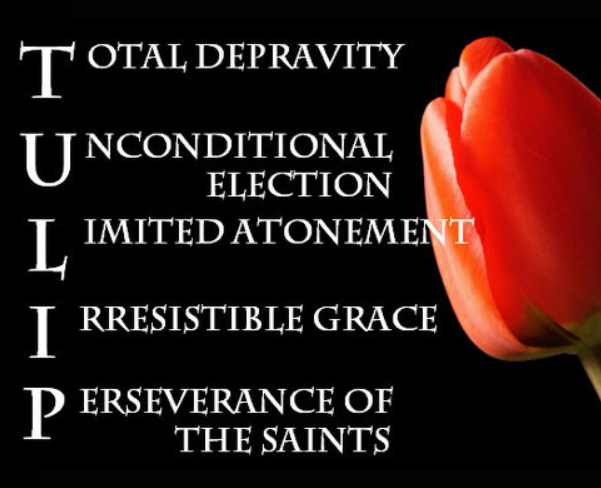The concept of Baptist Church Perpetuity, also known as Baptist Successionism, has been a subject of intense debate within Baptist circles. This theory posits that Baptist churches have existed in an unbroken line since the time of Christ and the apostles. However, this claim is not without its critics. Let's examine the arguments for and against this controversial idea. The Case for Baptist Church Perpetuity Proponents of this theory argue that: Jesus promised church perpetuity when He said, "upon this rock I will build my church; and the gates of hell shall not prevail against it" (Matthew 16:18). The church is defined as a local, visible entity composed of properly baptized, organized groups of people, given the exclusive right to propagate in perpetuity until Christ's return. This perpetuity is claimed because it is promised by an all-powerful God. Even in the absence of historical documents, faith in Jesus' promise is sufficient. Various historical groups, such as the … [Read more...]
Seven Arguments Against Applying Psalm 12:6 to the King James Version
Question: Does Psalm 12:6 refer to the KJV version? "The words of the LORD are pure words: as silver tried in a furnace of earth, purified seven times." (Psalm 12:6)As Christians we are supposed to study, rightly dividing the Word of Truth. I am sorry to say that the KJV-Only camp does one of the worst exegeses of this verse. In some sense I am not surprised as a lot of people in the KJV-Only camp is fond of eisegesis instead of doing proper exegesis. (May God forgive them for mishandling His Words, adding to what His Words really mean... for they know not what they do... or do they?)Arguments that Psalm 12:6 does not apply to the KJV are as follows: ARGUMENT #1 – This is a completely wrong interpretation of the verse. Frankly speaking, I am ashamed to call myself a pastor if this is the way I interpret the verse. Such interpretation of the said verse that it refers to the KJV is one of the many lies, illogical fallacies, and serious misinterpretations of Scripture that the KJV-only … [Read more...]
A Critique of Brian Abasciano’s Corporate Election Theory
Do you agree with Brian Abasciano's corporate election theory? Why or why not? With regards to corporate election, well of course there is such a thing as corporate election (church, nation) and yes, definitely there is individual election. Even Dr. Abasciano acknowledges this as you quoted above. However I do not subscribe to Dr. Abasciano’s view because for the following reasons:1.) Dr. Abasciano engages in word play, argues on semantics and argues fallaciously – No matter how he states it either way, the group and the individual are inseparable. There is no group without the individual, no “ekklesia” without the “called out ones.” His insistence on somehow drawing a fine line between corporate election and individual election borders on committing the fallacy of equivocation. Trying to make a distinction when there should be none and then saying that both views are logically coherent, borders on the fallacy of circular reasoning. Of course, it is logically coherent because … [Read more...]
Steering Clear of Online Scams: How to Protect Yourself from Digital Fraud
Scams and get-rich-quick schemes have been around for as long as money has existed. But in today's fast-paced, hyper-connected digital world, scammers have more opportunities than ever to trick people out of their hard-earned cash and sensitive information. There are all sorts of scams out there, from fake emails and identity theft to Ponzi schemes and bogus investment opportunities. Scammers are getting smarter and more creative, using a wide range of tactics to fool people. The scary part is that these scams are having a huge impact on people's lives. A recent survey by the Global Anti-Scam Alliance and Scam Adviser found that a whopping 40% of people worldwide have lost money to investment scams. Even worse, most of them (69%) didn't even try to get their money back because they didn't know how. These scams are hitting people where it hurts - their wallets. About 66% of people said that getting scammed had a big impact on their finances. Surprisingly, 32% didn't try to … [Read more...]
Understanding the Differences Among Calvinists: 3-Point, 4-Point, 5-Point, and Hyper-Calvinism
Well, there are some points in Calvinism that some people who label themselves "Calvinist" don't accept. However, for me, one can't consider himself a Calvinist if one does not accept the five points. The five points work seamlessly and are logically flawless together and supported by Scriptures. Further, they have a basis in Church history as they are the ones laid down by the Synod of Dort in response to Arminianism. (A side note: The most famous five-point Calvinist among independent Baptists was probably Charles Spurgeon.) You can't take one point away and still call it Calvinism. It's the whole package. You can't call yourself a Calvinist if you don't accept the five points. But that's just me; I can't impose labels on people if they insist on calling themselves a Calvinist if they only accept three or four points. But if we are to be technical about it...Most Calvinists do not consider somebody to be a Calvinist if he/she only adheres to three points, and there are a lot of … [Read more...]
- « Previous Page
- 1
- 2
- 3
- 4
- …
- 14
- Next Page »





